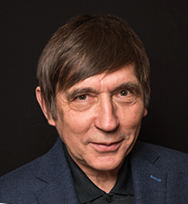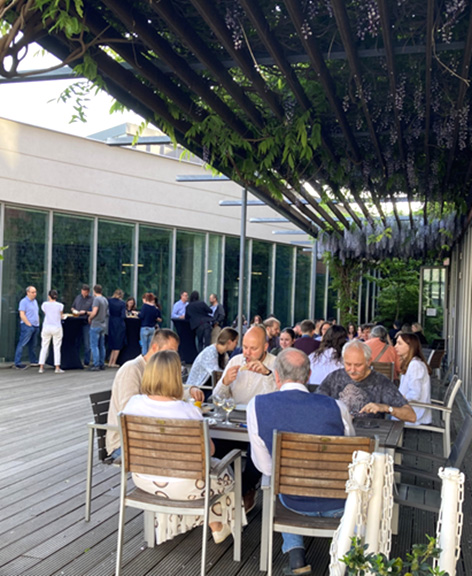
Dear Colleagues,
as usual at this time, I would like to briefly summarize the events of the past year at our Institute and what lies ahead of us in 2024. In 2023, the main task of the Institute management, as in previous years, was to ensure the professional work environment and conditions for research within the confines of a public research organization, to secure funding for our activities, and to contribute to ensuring that the funding that the Institute has received and continues to receive is translated into significant new knowledge in our research areas in accordance with all relevant regulations. These tasks have been addressed at the level of the Institute Management Board, the Council of IMG and the Supervisory Board of IMG.
In 2023, as in 2022, our activities were affected by the energy crisis, which translated into a significant increases in gas and electricity prices and a consequent increases in operating costs, which were only partially compensated by the founder. Due to the negative impact of the increase in energy prices, we had to take a number of cost-saving measures, including lowering the heating temperature, banning the use of convector heaters, limiting humidification of the air, shortening the operation of air conditioning, limiting animal breeding at the Krč site and other changes. Inflation has also had a negative impact, which has manifested itself in the increased costs of running the Institute as a whole.
During 2023, several organizational changes were made, including creation of two new junior groups, Laboratory of Structural Neurobiology and Laboratory of Tissue Morphogenesis and Cancer, transfer of the Laboratory of Adaptive Immunity from the junior group to the senior group, transfer of the Laboratory of Biology of the Cytoskeleton from the senior group to the low-cost group, and termination of the Laboratory of Molecular Pharmacology and Laboratory of Mouse Molecular Genetics. The Institute enters 2024 with 26 research and research-service groups (21 in Krč and 5 in Vestec within the BIOCEV project) and four large national infrastructures, three of which are located in Krč (Czech-BioImaging, CZ-OPENSCREEN and ELIXIR CZ) and one in Vestec (Czech Centre for Phenogenomics). Our core facilities, including the Proteomics Laboratory, a joint facility of the Institute of Physiology and IMG, which is entering its fourth year of operation, have been of great importance for ensuring the work of the research groups. These and other changes are reflected in the updated organizational structure.
As of 31 December 2023, our Institute had a total of 516 employees (458 in full-time equivalent), with 244 working in research groups, 25 in service-research groups, 28 in research services, 165 in large research infrastructures, and 54 in administrative and technical services, including the Office of the Director.
The results of our research were presented in nearly 100 publications in major international journals in 2023. If I were to list the three most important results of the Institute, I would choose the work of Veronika Horkova et al. from the Laboratory of Adaptive Immunity, published in Nature Immunology, Josef Pánek et al. from the Laboratory of RNA Biology, published in Nature Communications, and Radka Storchová et al. from the Laboratory of Cancer Biology, published in Nucleic Acids Research.
The activities of the research groups produce new application results and patents, which in many cases reflect cooperation with the business sphere and bring considerable financial resources (more than 40 million CZK) to the budget of our Institute. To support these activities, the Institute continued to operate the Centre for Technology Transfer. Increased activities in this direction are expected from our involvement in the biotechnology cluster, Prague.bio, z. s. (in Czech) in which the Institute is one of the founding members.
In 2023, as in the previous year, we received the majority (>60%) of the funds to secure the operating costs of our research tasks in the form of specific funding from grant agencies and other providers in the amount of CZK 490 million and CZK 273 million from the founder. Therefore, it is not surprising that in 2023, we addressed 96 grant projects from various providers, including the Czech Science Foundation (40 projects), the Ministry of Education (16), the Technology Agency of the Czech Republic (15), the EU (9), the Ministry of Health (14), and others. On average, each research group deals with more than three research projects with a significant administrative burden. The preparation of grants, monitoring their progress, and informing about grant opportunities is handled by the grants group, which was established in 2022 within the Economy Department.
Significant attention was paid to the provision of the PhD programme, the PhD Conference and the 47th annual Advances in Molecular Biology and Genetics course. In addition, a number of other courses took place, involving several research and service groups of the Institute.
The administrative and technical units, which include the Administration Team, the Economy Department, the Building Maintenance and the Information Technology Department, are of fundamental importance for the research work of the entire Institute, and in 2023, as in previous years, handled a range of demanding tasks to a high standard, starting with the economic management of the Institute, renovation and repair of buildings, provision of grant projects, provision of external audits, and maintenance of the Institute computer network. Essential services for most of the research groups of our Institute are provided by the animal facilities located in Krč, in the BIOCEV Centre and in Koleč. A number of other activities of the Institute are presented on our website and in the minutes of the IMG Council, which are available on the Institute intranet.
As in previous years, our employees received a number of awards in 2023, including the Wilhelm Bernhard Award, which was obtained by Pavel Hozák, the Honorary Diploma for long service to the Federation of European Biochemical Societies, which was awarded to Václav Pačes, the Special Jury of the Czech Brains Award to Tomáš Brabec (article in Czech), and the Best Photography Award for the IInd Science area in the ‘Photogenic Science‘ competition, awarded to Jiří Černý. For their scientific activities in molecular biology, Hana Hanzlíková and David Staněk became new members of the European Molecular Biology Organization.

In the past year, we continued the tradition from the time of the coronavirus pandemic and split the all-Institute meeting into two dates. In January, a meeting was held to mark the start of the New Year with a focus on administrative and service units, and in May, a two-day IMG conference was held at which IMG research group leaders presented and discussed their research projects. This conference was followed by an all-Institute assembly, focused on science and linked to the award of the best research papers of the previous year, and an all-Institute party. Also important was the all-day meeting of the heads of the research and administrative departments in October 2023. Unlike in 2022, when a meeting of similar focus was held as a two-day meeting in Liblice, in 2023 the meeting was a one-day and low-cost meeting at the IMG premises. This meeting was also highly beneficial for setting important directions for securing research and further development of IMG at our research, administrative and service departments. The Institute hosted many other events, including opening of selected Institute laboratories to the public as part of the Open Doors Day, lectures for non-scientists, opening of selected laboratories to children of the Institute staff, and more. As well, of non-negligible importance was community service in which we participated, such as maintenance of the playground.
The year 2024 builds smoothly on the work of the past years and will be marked by the improvement of our Institute in several ways. Major national infrastructures at IMG will be strengthened with an investment of more than CZK 300 million. The support includes, in part, construction of a new laboratory for work with highly infectious viruses and bacteria at the BSL-3 safety level in Krč. In addition, the data repository will be improved and expanded, and we will look at the possibilities of using electronic laboratory log books. Renovations will be made to make more efficient use of energy resources and in Krč we plan to build a 60 m3 rainwater tank. Improvement of technology transfer, institutional services, cyber security (NIS2), computer networking, and many other activities will be addressed in an effort to improve the conditions for the work of research laboratories and the work of staff in general.
In conclusion, I would like to thank all the employees of our Institute in research, administrative, and service units for the work done so far and I look forward to further cooperation in improving the quality of our Institute at all levels.
January 20th, 2024
Petr Dráber